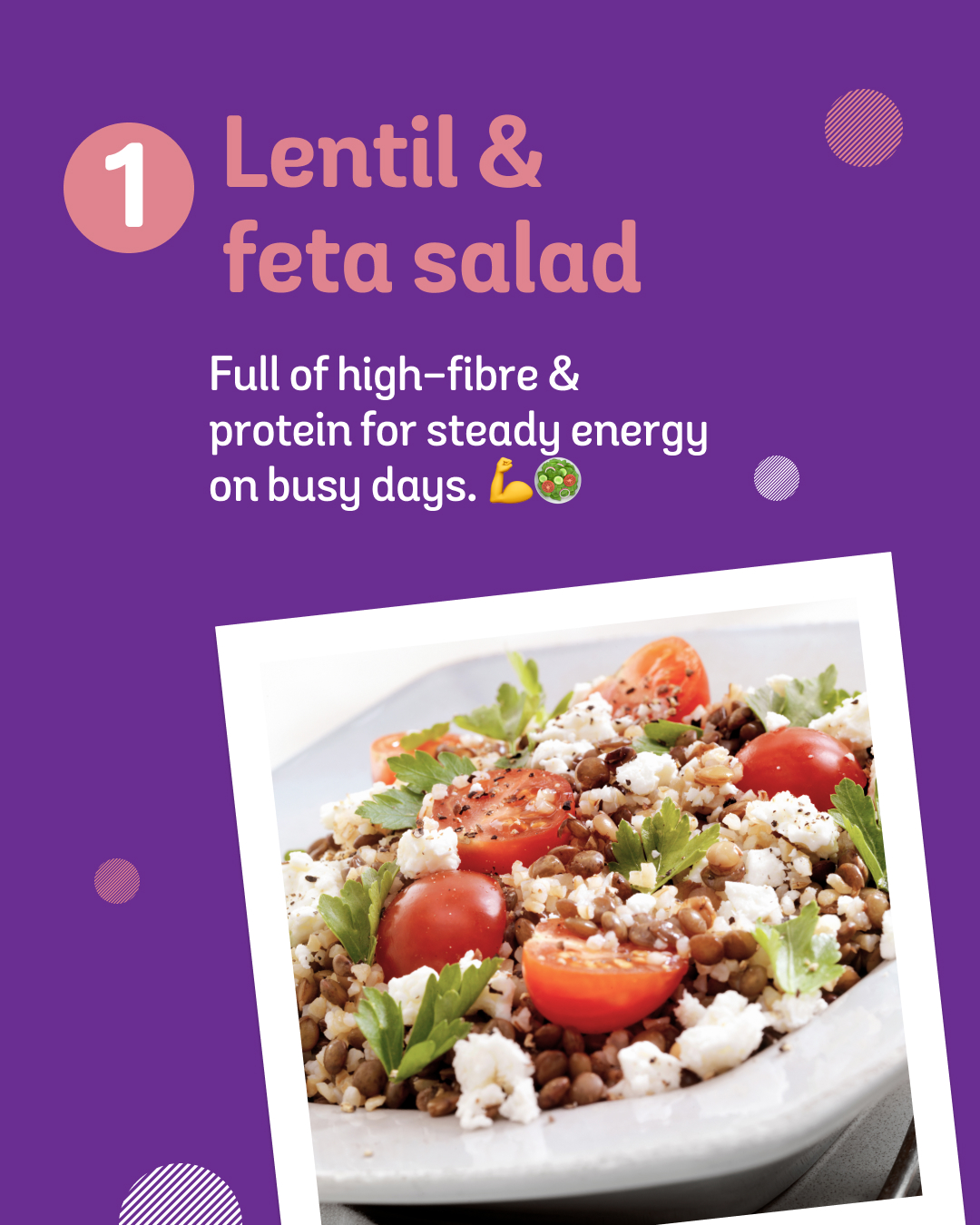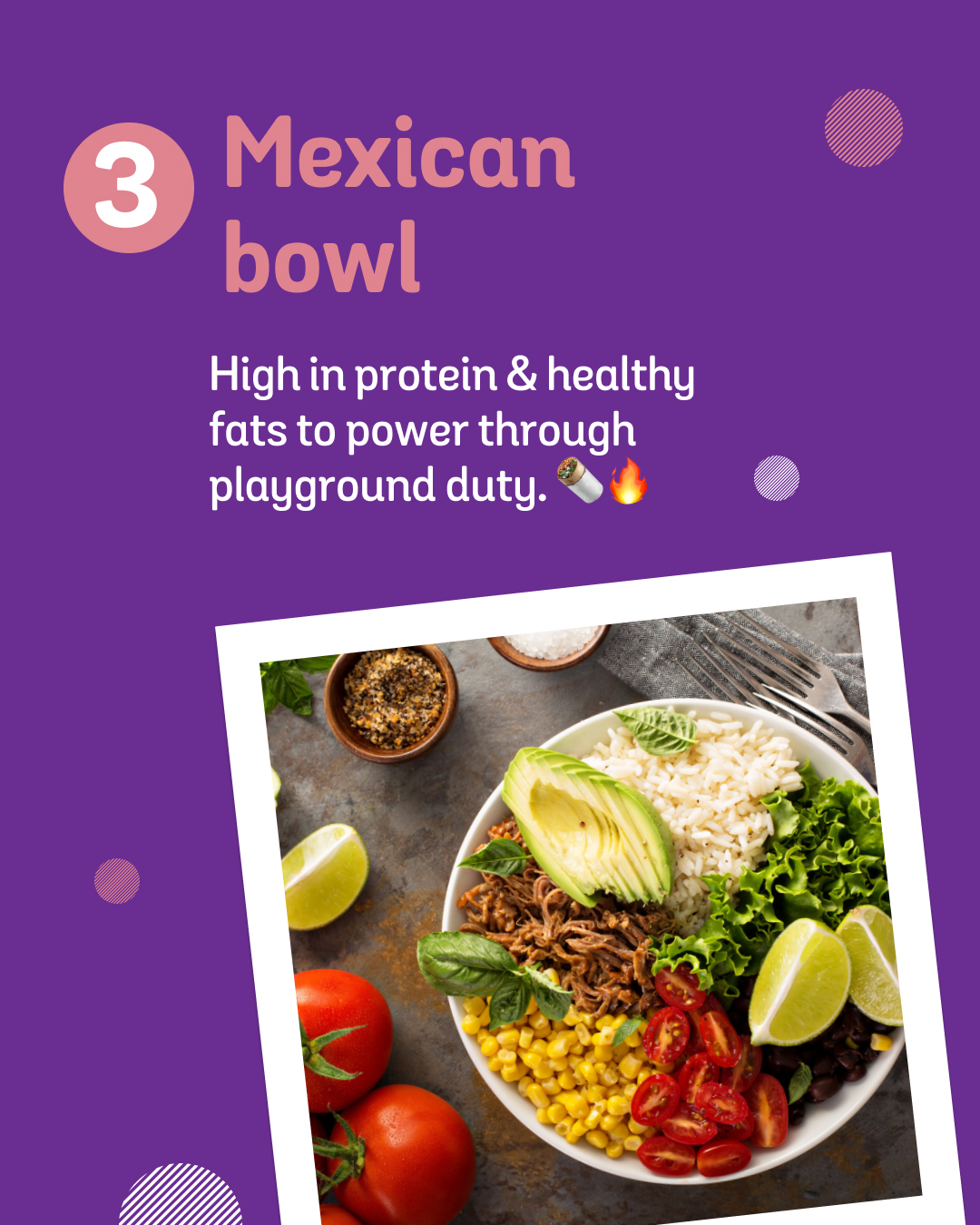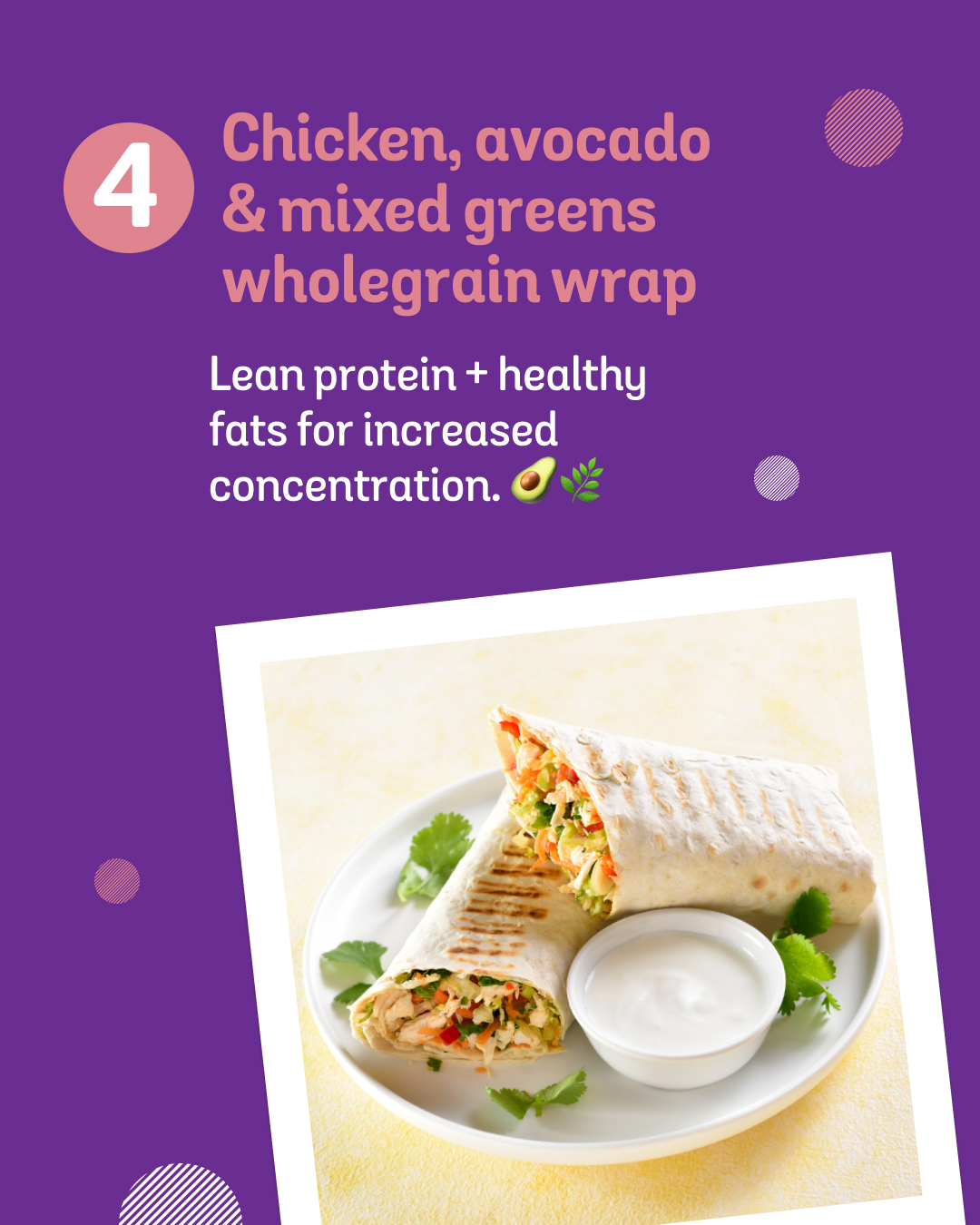Simple strategies to stay energised and focused
Expert contributor Barbara Yassa, Accredited Dietitian
Nurses, midwives and care workers know the struggle of making it through a long workday with energy to spare. Between unpredictable shifts, demanding patient care, and restricted break times, eating well can feel like an afterthought. But according to Accredited Practising Dietitian Barbara Yassa, a few simple strategies can make eating well become second nature —without adding more to your plate.
Power through with the right fuel
The key to maintaining energy throughout the day is choosing foods that provide lasting fuel. A combination of high protein foods and high fibre foods can do just that. “Protein takes longer to digest, helping you feel fuller for longer, while fibre aids digestion and supports steady blood sugar levels—preventing those dreaded mid-afternoon energy crashes,” Yassa explains.
To set yourself up for success, she recommends stocking up the fridge or pantry with nutritious ingredients ahead of time. “If you have the right foods on hand, you won’t have to think twice about making a nutritious choice”.
When grocery shopping, focus on foods rich in protein and fibre:
- Protein: Greek yoghurt, cheese, nuts, lean meats, fish, eggs, tofu
- Fibre: Whole grains, fruits, vegetables, legumes
By mixing and matching these ingredients, you can create simple meals and snacks that are both satisfying and nutritionally balanced.
Your energy roadmap: smart food planning
Having the right foods available is only part of the equation—planning when and what to eat can make a significant difference. While meal prepping might seem daunting, even a rough plan helps you stay on track as unplanned meals often lead to last-minute choices that may not be the best for our energy levels.
The first step is to start the day with a nourishing meal. This will ensure you can be well fuelled and ready to take on the day. Depending on time, your selection can be a quick smoothie, toast with added protein (e.g. nut butter or cheese), or bowl of wholegrain cereal with milk. If you have more time, consider a cooked meal with eggs and vegetables.
Packing easy-to-prepare meals ensures you have something nutritious on hand and won’t need to rely on convenience foods that offer energy dense ingredients, or large portion sizes. To help out, here are some easy-to-pack meals:




Snacks often get a bad rep. But instead of viewing snacks as unhealthy impulse choices, recognise their role in fuelling you throughout the day, and plan your snack choices in advanced. This can be an essential tool for sustaining energy and focus between meals and help to manage your hunger and portion sizes at lunch or dinner meals.
To make this even easier, here’s a handy guide to turn what you have in your kitchen into a simple grab-and-go option:
| Stock up on | To snack on | Or lunch on |
| Whole grain bread | Peanut butter & banana toast | Cheese & salad whole grain toast |
| Greek yogurt | Yogurt with berries & nuts | Falafel balls with tzatziki |
| Hummus | Hummus & veggie sticks | Whole grain wrap with hummus & chicken |
| Avocado | Avocado on wholegrain crispbreads | Mexican beef wraps |
While it can sometimes be challenging on a busy shift to pause and eat, setting aside even a 10-minute break can make a big difference. This not only helps regulate your blood sugar levels, keeping you more focused during high-pressure situations, but will also prevent overeating later when you finally grab a bite.
Shift your mindset: food for enjoyment
Beyond knowing what and when to eat, having a positive mindset about food is just as important. Eating well doesn’t mean restricting yourself—it’s about balance.
Fruits and vegetables are always great choices, but cravings happen, and that’s okay. Instead of labelling foods as “good” or “bad”, focus on pairing treats with something nutritious. If you want a piece of chocolate, balance It with nuts, fruit or yoghurt for a more satisfying and nourishing snack.
Fuel your workday, your way
“Your workday demands a lot,” Yassa concludes, “and your food should support your energy levels, not hold you back. Embrace balance. Stock up on healthy options, plan your meals and snacks, and allow for the occasional portion-controlled treat can help you maintain balance.”
With small, consistent changes, you can power through to the end of your shift feeling energised, focused and ready for whatever it brings.
Sources:
